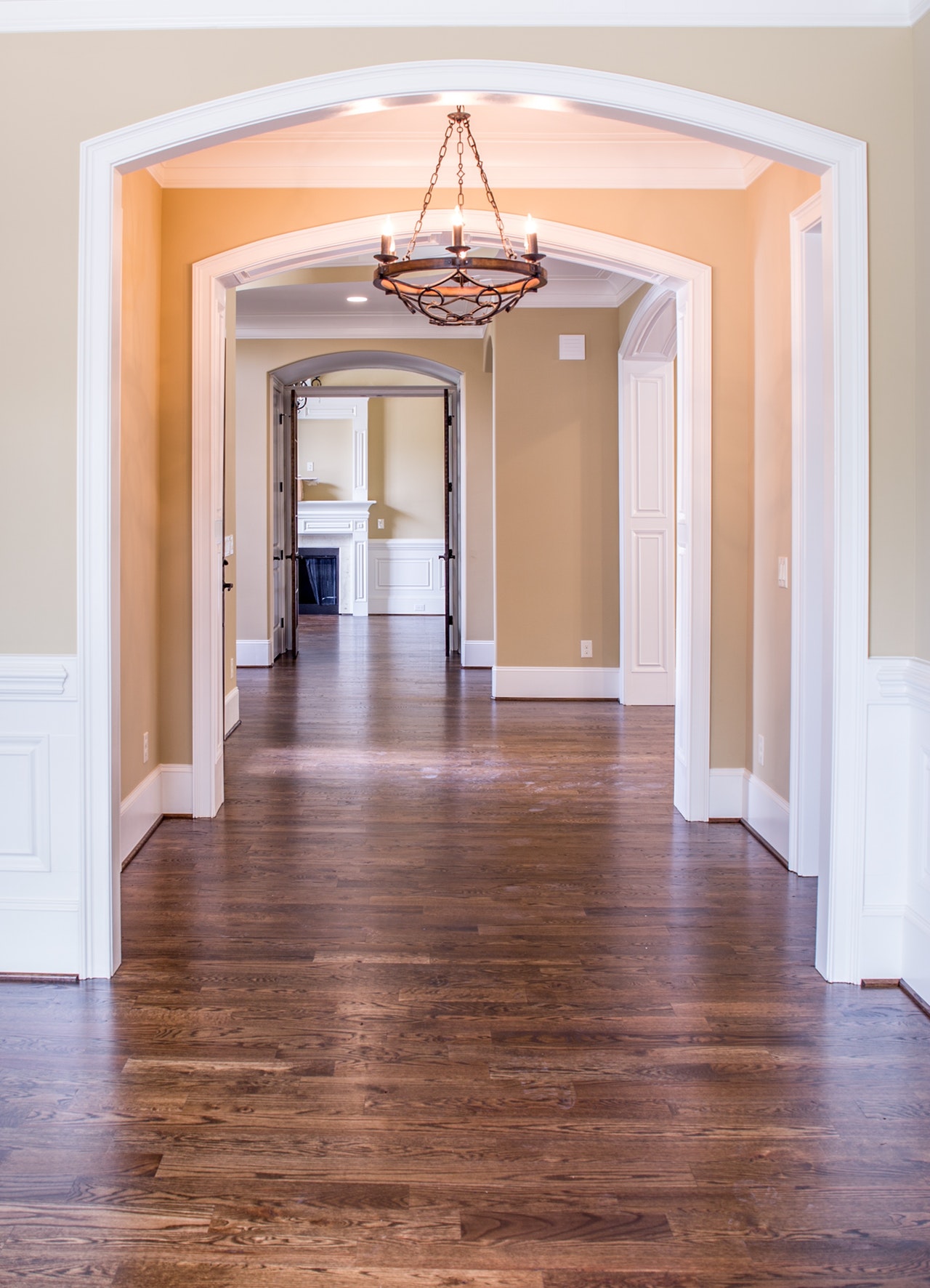When deciding on wood flooring materials, there are a few different options available. Solid hardwood is probably the most familiar material to your average lay person, but there is also the possibility of engineered hardwood or laminates. This article will compare engineered hardwood with solid hardwood and laminates and explain how durable engineered hardwood is in comparison.
Solid Hardwood Vs. Engineered Hardwood
The main difference between solid hardwood and engineered hardwood is that a plank of solid hardwood is composed of a single, solid piece of hardwood. As for engineered hardwood, the plank is composed of several different layers. The top layer is a hardwood veneer to give a similar look to solid hardwood. However, below that veneer are several crosswise layers of plywood made of a hardwood that are glued and pressed together under high pressure. The result is a sturdy plank that’s resistant to moisture and warping. This allows engineered hardwood planks to be used in places that solid hardwoods aren’t used, such as bathrooms and basements.
Engineered Hardwood Vs Laminates
Many people confuse engineered hardwoods with laminates because they are both composed of several layers of wood. However, all the layers of engineered hardwood planks are composed of hardwoods, whereas the different laminate layers may include fibreboard and other materials. This means that laminates, similar to solid hardwoods, do not react well to moisture. Also, the laminate veneer is typically only a photographic image which means they cannot be sanded down as part of a resurfacing project as can engineered hardwood boards
Engineered Flooring Finishes
Engineered hardwoods are typically prefinished and feature a durable coating that’s been applied at the factory. This adds to the plank’s durability and gives it a lustrous shine. Solid hardwoods come both unfinished and prefinished. Unfinished hardwoods need to be treated during installation which can add time and money to the project. Prefinished woods are typically much more durable than those finished during installation which gives engineered hardwood an advantage over unfinished solid hardwoods.
The Janka Score
The type of wood that engineered floor boards are composed of determines their hardness and durability. The industry standard for quantifying a wood’s hardness is the Janka score. A higher Janka score means a harder wood and a more durable plank. The optimal Janka score for a hardwood floor will depend on the amount of use a floor will experience.

